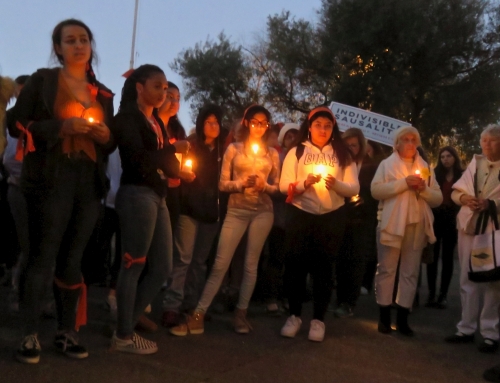
Within the first week of the legalization of marijuana, long lines formed in front of cannabis-selling stores quickly exhausting the in-store supplies in just short periods of time after opening. Canadian cannabis operations were buying up American producers triggering our neighbours south of the border to sound warnings to their own government that they would lag far behind Canada’s cannabis industry if these aggressive buying trends continued. The popularity of our federal Liberal g overnment was increased overnight as they revelled in the fulfilment of an election promise to the people of Canada. An evaluation from the perspective of popularity, economic demand and social acceptance on the basis of such evidence alone seems to indicate that our Canadian society is well in favour of the legalization of marijuana.
overnment was increased overnight as they revelled in the fulfilment of an election promise to the people of Canada. An evaluation from the perspective of popularity, economic demand and social acceptance on the basis of such evidence alone seems to indicate that our Canadian society is well in favour of the legalization of marijuana.
Yet there are ample parallels throughout human history that popularity, high demand and social acceptance are not the best indicators that something is right and good. The rise of fascism in Europe, the popular use of tobacco in the West, the increasing use of opium in the East and the proliferation of fads in our modern society all point to the trend that a meteoric rise in popularity, demand or acceptance is not necessary moral or even ethical. Fundamentally, Jesus called these choices the “broad road” (Matthew 7:13) approaches to life, and throughout history, the voices that have cried out against such movements of humanity towards these broad roads have felt inadvertently that they are shouting into the wind. But shout they must. And so must the church.
Speaking Before God to Humanity
Despite the so-called evidences that have been presented by various respected members of society that the use of marijuana is by and large harmless in that it is non-addictive, and if used responsibly can even be socially and personally beneficial, believers in Christ who understand the medical impact of marijuana and who understand its social impact need to speak clearly and unwaveringly about the terribly negative effects of this drug when used recreationally. This is not a civic duty, though it is indeed necessary for our civilization. It is also not a moral duty, though it would not be moral to keep silent. The church needs to understand that we speak as a spiritual duty, as the voice of the loving God to darkened humanity. In Biblical term terminology, the church has to be heard as a prophetic voice – a voice defined as an ambassador of God to humanity. That is the prophetic voice of John crying “as a voice in the wilderness” (John 1:23); or Isaiah who cries, “Ho, everyone who thirsts come to the waters” (Isaiah 55:1)
If the church speaks, it must be with the urgency yet the gentleness of love with the awareness of the Name of Jesus by which we speak and the desperate need of the society to which we speak. But understand two things about prophets. First, prophets have no honour in their own homes (Matthew 13:57), so the prophetic voice of the church must be exercised with no expectation of honour from the communities to which we speak. And second, prophets do not speak out of their own will or agenda (2 Peter 1:21) but with a voice driven along by the Spirit of God. To understand this is to understand that sometimes the prophet’s will needs to be subdued so that the Spirit’s voice can be heard. That is difficult for the church that gets caught up in the rhetoric of the culture. We forget that by speaking with anger, we do not fulfil the righteousness of God (James 1:20). And we forget that we need to eschew a mind set on political and social purposes rather than the purposes of God (Mark 8:33).
The Healer of the Soul
Ultimately, the insight that the church needs in the environment of social changes as we see in the legalization of marijuana is the insight of the Saviour as He stood on a Galilean hill watching a multitude of people gathered as sheep without a shepherd. The gospel writer puts it simply, “He had compassion on them.” (Matthew 9:36) The response of Jesus was to teach, to help, and to heal. If the church is to grasp firmly the next steps in this journey into the healing of the brokenness that comes out of marijuana use among individuals, both the young and the old, we must grasp the compassion of Christ among the lost. In a curious passage where Jesus unpacks a theology of the lost, Luke records three distinct parables that Jesus told back-to-back (Luke 15). One goes out to the places marked with danger to seek out the foolishly lost; another turns on the lights and tidies the house to seek out the ignorantly lost; and yet another watches diligently with concern and kindness for the wilfully lost. It is an instruction to the church to take on the attitude that the lost need to be found and then to act upon it.
And accompanying the theology of the lost is the church’s need to be audacious in faith to bring the healing of Christ to the brokenness of people who seek the use of marijuana to begin with. Such an audacious faith declares the power of Jesus to heal a generation seeking comfort, resolution from anxiety and stress, and release from the elemental principles of this world (Colossians 2:8) which they call “reality”. It is with such audacity in faith that two disciples, Peter and John, declared the healing of Jesus on a man born lame and raised him to strength. The later unkind evaluation of Peter and John (Acts 4:13) were that they were “uneducated and common” men (literally, in the original Greek, “men who are idiots with no understanding of grammar”). What was undeniable was the healing of a man from the grip of disability. In the climate of the legalization of marijuana and the accompanying upsurge of the problems that recreational marijuana use brings, the church needs to take its rightful place as the agency of healing. This includes the healing of the home as well as the healing of the individual. And in order for the church to be an effective healer, we must cease our in-fighting, dismantle our disdain for the lost, and put on a compassionate heart, filled with kindness, humility, meekness and patience (Colossians 3:12) through which the power of Christ is released.
Living Church
In Frederic Nietzsche’s foolish attack on the veracity of God, he crafted a metaphor of a madman seeking with a lantern in the early morning the God who he declared had died. What draws us to this story is not his errant declaration that God is dead (since it is Nietzsche who died while God is alive), but the last phrase by which he closes the story – that the madman smashes his lantern, finds himself running in and out of churches, and discovering that the churches are the tombs of God. It gives us cause to think. Nietzsche is wrong about God, indeed! But is he wrong about the church? Are churches places alive with the power of the living God? Are we living passionately for the cause of Christ in a world that needs the Saviour? We may cry foul to the political ignorance that brought about the legalization of marijuana, but are we likewise willing to live the life of the people of Christ in this world as described in the Sermon on the Mount, as Watchmen on the wall, prophets of the Most High, and Healers of our Nation? Time to live out church as He called us to be.






